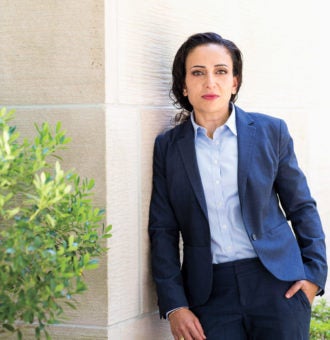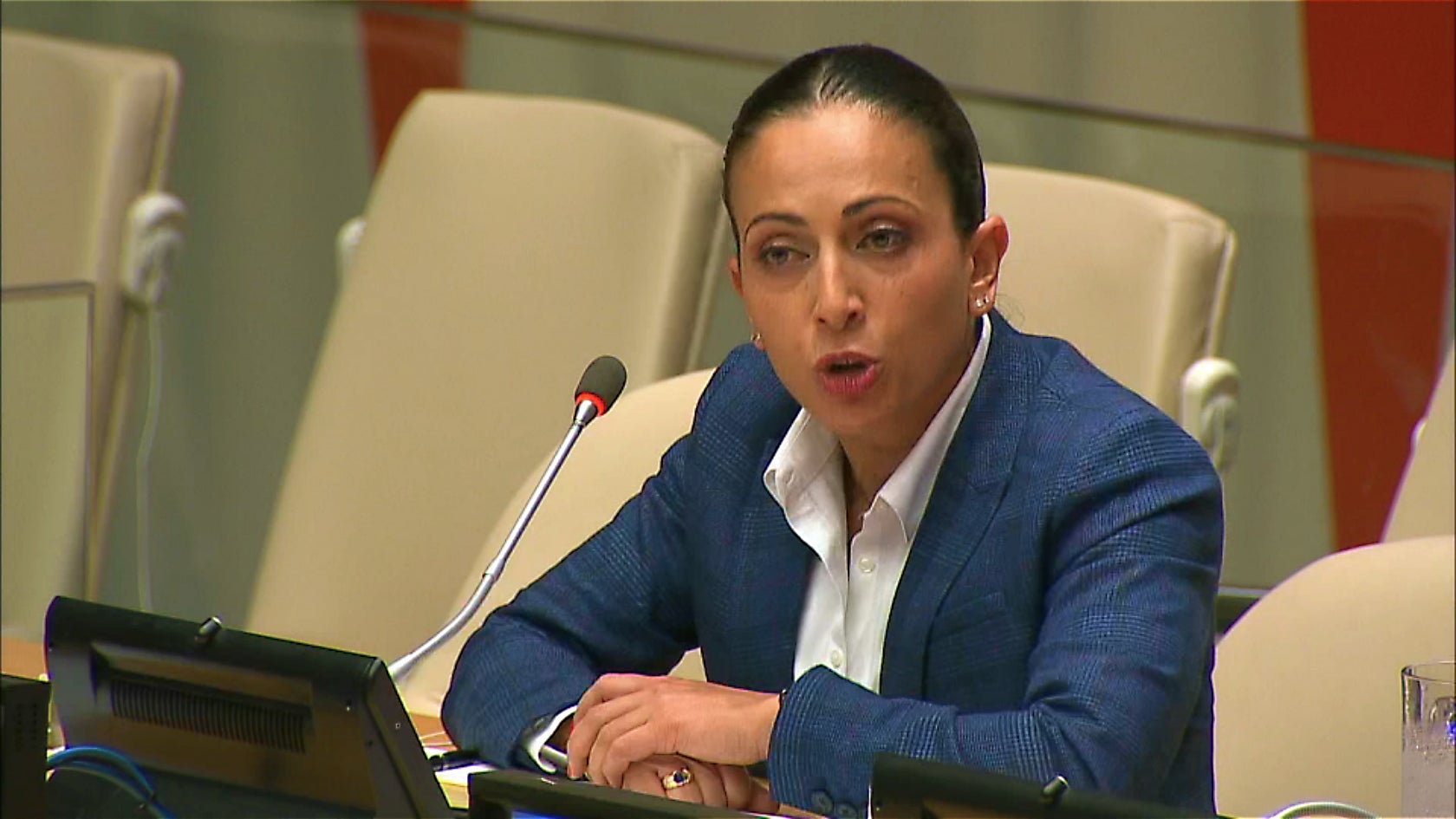
Naz K. Modirzadeh ’02 is founding director of the HLS Program on International Law and Armed Conflict (HLS PILAC).
“The real problem is not the law — it’s the enforcement of the law,” said Professor of Practice Naz K. Modirzadeh ’02 at a United Nations General Assembly event on Sept. 22. Her talk, “International Humanitarian Law: Addressing violations in light of recent conflicts,” focused on failures of international law to protect health care systems in armed conflict in Syria involving designated terrorists.
The U.N. event, “Protecting Health Care in Armed Conflict,” centered around the ongoing issues of attacks on health care and other related violations of international humanitarian law (IHL) in armed conflict. In addition to direct military attacks on hospitals and other health centers, concern is being raised at the U.N. regarding persecution of doctors who provide impartial medical care to terrorists and individuals in terrorist-controlled areas as well as attacks that prevent necessary supplies from reaching medical care centers.
The part of international humanitarian law with which the UN is contending is based on a 150-year-old principle — “the radical idea — at the time and perhaps still today — that once an individual is out of the fight […] there is an obligation on all to provide medical care,” Modirzadeh said.
This principle has been translated into contemporary policy most recently in the U.N. Security Council’s Resolution 2286, passed in May 2016, which condemns these attacks as violations of international law. But countries have been criticized for failing to take concrete steps to implement the resolution and hold accountable those responsible for the attacks. Modirzadeh called the resolution “a move forward and groundbreaking” but added, “these laws matter very little if we do not have evidence as to their implementation and violation and if we do not monitor and enforce them.”
In a follow-up interview, Modirzadeh said she hopes these panels help the Security Council and member states more broadly “recognize that there is a danger of eroding these foundational norms of international humanitarian law, including in crafting counterterrorism resolutions or approaches that are overly broad or indiscriminate.” In order to ensure that not just civilians in areas controlled by designated terrorists but also wounded terrorists themselves, once they are out of the fight, receive medical care under IHL, she said, it is important to have “a global constituency that buys into the underlying rationale of the law.”
She noted that areas where the law is “fragmented […] may undermine the ability to develop the law progressively and effectively moving forward.” She specifically pointed to the differences between international and non-international armed conflicts — most of those discussed at the hearing are non-international — and the non-prosecution of those who provide medical care.
“All parties to armed conflict — including states and non-state actors — have a responsibility to ensure protection for impartial medical care,” Modirzadeh said.
Her talk was based on a recent report out of the Harvard Law School Program on International Law and Armed Conflict (HLS PILAC), “Medical Care in Armed Conflict: International Humanitarian Law and State Responses to Terrorism.” The report, cowritten by Modirzadeh, HLS PILAC’s senior researcher Dustin A. Lewis, and HLS Professor and HLS PILAC faculty director Gabriella Blum LL.M. ’01 S.J.D. ’03, highlights gaps in IHL in protecting medical assistance in relation to conflicts involving designated terrorists.
Modirzadeh said HLS PILAC is continuing this research, particularly concerning where states can reinforce their commitment to IHL. She said HLS PILAC’s research will also continue to focus on what is for many “the least palatable” component of the issue — and that which advocates are currently least likely to emphasize — “that once they are out of the fight, terrorists also must receive impartial medical care.”
Modirzadeh, who has served as the director of HLS PILAC since its founding in 2014, regularly advises and briefs international humanitarian organizations, UN agencies and governments on issues related to international humanitarian law, human rights, and counterterrorism regulations relating to humanitarian assistance. HLS PILAC explores contemporary challenges concerning armed conflict through the lens of international law, fusing traditional public international law research, creative engagement with the ever-growing range of actors influencing contemporary battlefields, and targeted analysis on changing security environments.
